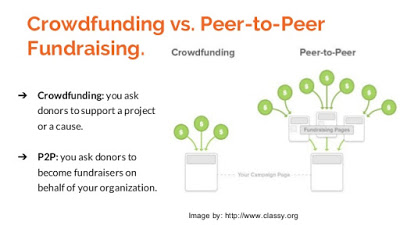The following is a newsletter I created for my Introduction to Educational Administration course regarding the significance of social media and how it can be used by educators (specifically administrators) as a professional learning tool.
Principals on Social Media: Why Should You Get Online?
Schools can no longer be autonomous organizations that operate behind closed doors. Schools are held accountable by a wide spectrum of diverse stakeholders that includes everyone from student family’s and community members to divisional administration and governmental departments. As the leader of their building it is one of the principal’s primary objectives to communicate school information clearly and concisely with all stakeholders (Farrell, 1999, Parents & Community chapter, para. 7) (Ferriter, Ramsden, & Sheninger, 2011, p. 20) (Waxman, Boriack, Lee, & MacNeil, 2013, p. 191). One indicator of a principal’s managerial effectiveness relates to their ability to select… Read More
Crowdfunding in the Classroom: Controversial or Simply 21st Century Fundraising?
*This post has been written as part of my journey through my Master’s Degree in Curriculum & Planning through Brandon University Does your school participate in fundraising activities to raise money for educational resources or opportunities that fall outside of the budget constraints of your building? If so, it most likely involves students and staff petitioning their friends, family, and community selling any number of items: chocolate bars, baked goods, cooking supplies, cash calendars, etc. At any time have you shared these endeavours through social media? If so, you have moved your traditional fundraising into the 21st century and… Read More
The Role of School Administration in the Success of ICT Program Implementation: Traditional vs. Distributed Support Models
An administrator’s role in their building or district is becoming increasingly complex as today’s education system involves multiple stakeholders and programming needs. One such role includes the development and implementation of technology use within their facility(ies). The use of technology by educators and their students is becoming an essential component of interacting successfully within our globalized 21st century society. Successful programming, however, requires an administrator to be directly involved in all aspects of any technology-based implementation from planning, to classroom use, to troubleshooting. An administrator that is directly involved in the implementation of an information and communication technology (ICT) program… Read More
